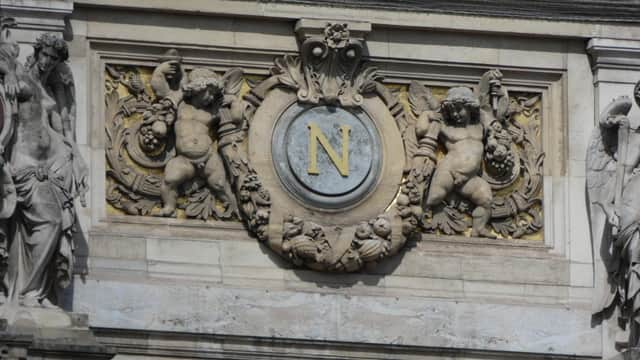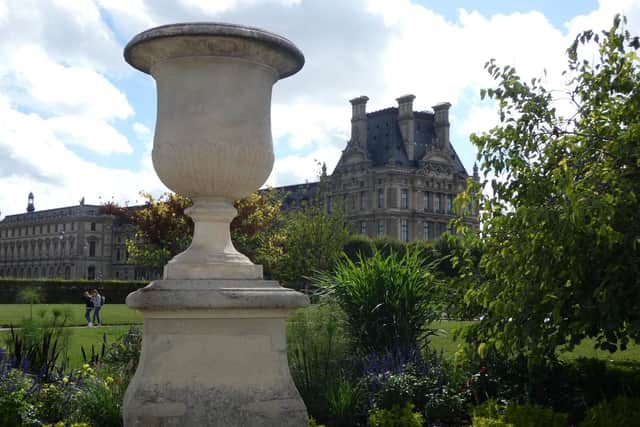Forgotten Local Histories: A future Emperor of the French in Royal Leamington Spa


The new arrival
At half-past three in the afternoon on Saturday November 3, 1838, a thirty-year-old man emerged from the carriage of a steam train onto the platform at Coventry station.
The man, who had chestnut brown hair and a pale complexion, was not especially tall (he stood at 5 foot 6 inches); and, in the words of biographer David Baguley, he ‘was not blessed with any of the physical assets that could have made the task easy for his image makers and official portraitists’.


Advertisement
Hide AdAdvertisement
Hide AdNevertheless, he exhibited a regal air when he swept through the station and stepped into a waiting coach, one of three, that whisked him and his entourage away on the short journey to Leamington Spa (recently affixed with the prefix ‘Royal’ by order of Queen Victoria).
The gentleman in question was visiting Warwickshire for the first time. He was French in origin, born in Paris in 1808, and had recently travelled to Britain from Switzerland. His arrival had caused quite a stir.
For weeks, the London newspapers had been awash with updates on the status of this distinguished visitor, whose presence generated such excitement that, earlier in the day, crowds had gathered in Euston Square to bid him bon voyage for his trip to the Midlands.
The British fascination with this individual arose, in part, from his distinguished lineage. Prince Louis Napoleon, as he was then known, was the nephew of Napoleon Bonaparte.
The British obsession with Napoleon
Advertisement
Hide AdAdvertisement
Hide AdDespite the Napoleonic wars ending over twenty years before, Napoleon was still a person of immense fascination for the British people and his reputation had undergone a major transformation in the years since his demise.
Indeed, the British public’s opinion had moved away from predominantly seeing Napoleon as a tyrannical despot to viewing him in a more sympathetic light.
In November 1838, the Warwick and Warwickshire Advertiser was besotted with Napoleon, recalling the ‘striking and engaging personal qualities’ of the ‘celebrated’ man.
A few weeks later, the paper went further, describing Napoleon as ‘one of the most wonderful men which Europe has ever produced’.
Advertisement
Hide AdAdvertisement
Hide AdIn as much as it admired Napoleon, the paper was also critical of the British government’s decision to send him to St Helena.
Twenty years after the event, many Britons felt sympathy for the man who had been sent into exile – effectively to his grave – without being put on trial.
The future Napoleon III
This sympathy made it easier for Napoleon’s nephew to enter into British society. As the Advertiser suggests, his arrival in Britain was a chance for the native population to redeem themselves after their treatment of the first Napoleon.
The British interest in Louis Napoleon was well-placed, especially in later years as the prince went on to become the first President of France (1848-1852) and then, like his uncle before him, Emperor of the French (1852-1871).
Advertisement
Hide AdAdvertisement
Hide AdHowever, in November 1838, Louis Napoleon’s future was uncertain, and it was not guaranteed that he would later become France’s head of state. Although, as we will see below, he had begun making moves in that direction.
The immediate interest of the British people in Louis Napoleon’s arrival on their shores arose not solely from his relation to the famous Emperor, but from the prince’s own exploits on the continent.
The prince had attempted a coup d’etat in France in 1836. The attempt ended in failure, but it served to raise the profile of the heir of Napoleon both in France and abroad.
More recently, he had been the face of a diplomatic incident between the French and Swiss governments.
The Franco-Swiss debacle
Advertisement
Hide AdAdvertisement
Hide AdThe Franco-Swiss debacle arose from the French fear of Louis Napoleon’s activities in Switzerland.
The young man had already attempted one coup, and the French were worried that he would attempt to launch another one.
This was not necessarily an unrealistic fear, especially considering that Louis Napoleon did go on to attempt a second coup in 1840 (which failed comprehensively). However, a coup was not at the forefront of Louis Napoleon’s mind in October 1838.
In any case, the actions taken by the French to thwart the prince were deemed excessive by contemporaries.
Advertisement
Hide AdAdvertisement
Hide AdInitially, the French asked the Swiss to expel Louis Napoleon from the country as they did not want the Bonapartist pretender living, and (allegedly) undertaking revolutionary activities so close to their borders.
However, the Swiss declared that they were a sovereign nation and that they would not be bullied into extraditing Louis Napoleon.
The situation threatened to escalate but, in the end, violence was avoided as Louis Napoleon elected to leave Switzerland of his own accord (which did much to endear him to the international audience watching the incident unfold).
First experience of Leamington
The prince arrived in Britain on 25 October 1838. He initially travelled to London, and then was bound for Leamington Spa.
Advertisement
Hide AdAdvertisement
Hide AdAfter an hour or two in his coach from Coventry, Louis Napoleon stepped onto the Parade and into the Regent Hotel to begin his stay in the spa town.
Next week, we will discover how the prince occupied his time during his three month stay in Leamington, which included parties, receptions, battles with the press, and a romantic controversy.
Next Week’s Article: A prince’s life in Leamington Spa: Louis Napoleon and Leamington